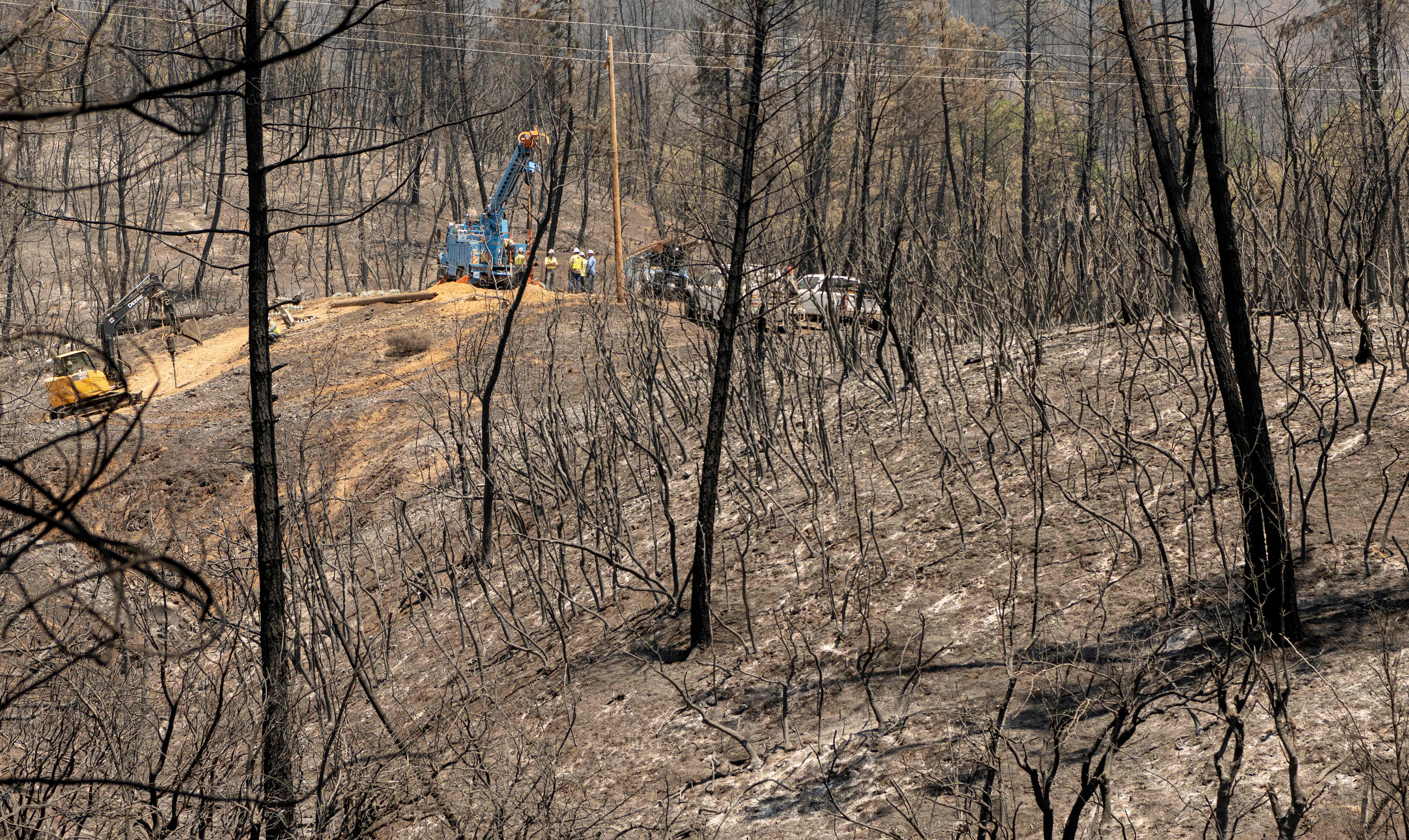Heatwave: US firefighters struggle to contain wildfires while Canada announces new measures
Firefighters in northern California are struggling to contain a massive wildfire

Officials in the US and Canada are scrambling to contain the damage from a blistering heatwave that has struck both countries.
Firefighters in the US are struggling to contain a wildfire in northern California as temperatures across the state and its neighbouring areas are soaring.
Meanwhile, the Canadian government has announced measures for railway operators in areas where the heatwave has caused wildfires.
Death Valley in California’s southeastern Mojave desert, often regarded as the hottest place on Earth, touched 130F (54C) on Friday and 128F (53C) on Saturday, according to the US’s National Weather Service.
Reports said the 130F temperature could be the greatest on record in the world, since Death Valley’s Furnace Creek area peaked at 134F (57C) in July 1913.
A massive wildfire along the state’s border with Nevada, just 300 miles (483km) away from Death Valley, has left firefighters struggling to contain it.
In Beckwourth Complex, two lightning-caused fires burned 45 miles (72km) north of Lake Tahoe and showed no signs of slowing. The blaze increased in size to 86 sq miles (222 sq km), even as only 8 per cent of the fire was brought under control, reported The Guardian.
Similarly, the Bootleg fire in Oregon has been spreading rapidly and has tripled in size between Friday and Sunday, according to the US Forest Service.
The National Weather Service Prediction Centre said on Friday that the heat was expected to affect “much of the west and southwest” and had issued a heat warning to more than 31 million people in the regions worst affected by the blistering heatwave.
Scientists have urged US president Joe Biden to undertake several measures in a bid to prevent extreme weather events like droughts and wildfires.
In Canada, the federal transport department issued a statement on Sunday that said it was putting in place measures to reduce risks to public safety and was “committed to protecting communities along rail lines”.
“Extreme weather and wildfire risk continue to pose an acute danger in British Columbia, as well as other parts of Canada,” the statement said.
The measures include railway operators needing to reduce the speed of trains when temperatures go beyond 30 Celsius, “as well as ensure trains are not running with combustible materials that could spark a fire”.
“Where the air temperature is 33 degrees Celsius or higher and the fire danger level for the area is ‘extreme’, Class 1 railways must ensure train speeds are reduced to 25 mph where permitted track speed between 26 mph and 50 mph and to 30 mph where the permitted track speed is 51 mph or greater,” the statement said.
These measures come after the Canadian government sent investigators to find out if a passing cargo train caused a wildfire late June that destroyed 90 per cent of Lytton town in British Columbia, according to a report by news agency AFP.
The wildfire has displaced hundreds of people in Lytton, British Columbia, the Lytton First Nation and surrounding areas.
In a statement, the village spokesperson on 6 July said: “We are a small community that has been devastated and we are all still reeling from the destruction of our homes, the tragic loss of life and the enormous impact this will have on us, both personally and financially, for years to come.”
The heatwave covered swathes of the country’s western provinces late last month. Officials say it has killed hundreds of people so far, most of them were without any air conditioning or fans.
At least 50 more blazes have erupted over the weekend across Canada.
Climate activists and scientists have claimed the changing climate is one of the major causes of extreme weather events like wildfires, tropical storms and heatwaves.
Subscribe to Independent Premium to bookmark this article
Want to bookmark your favourite articles and stories to read or reference later? Start your Independent Premium subscription today.

Join our commenting forum
Join thought-provoking conversations, follow other Independent readers and see their replies